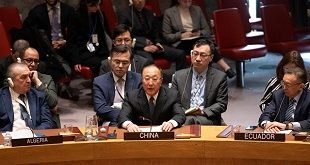BLOG
Amateur theatrics: An insult to Africa
By Rosa Whitaker as run in THE HILL (Congress Blog)
The Hill Amateur theatrics: An insult to Africa: Last week, I watched with dismay as two American diplomats w… https://t.co/LEkcL9Fu9K
— Congress Blog (@congressblog) May 19, 2016
******************************************
Last week, I watched with dismay as two American diplomats walked out on the inaugural address of a respected African leader who continues to make a major contribution to our shared objectives in the region and who has been a steadfast ally in the battle against global jihadism. Other African leaders attending the ceremony were visibly angered. To see two decades of goodwill built up under Presidents Bill Clinton and George Bush so carelessly forfeited was deeply saddening. Having worked for years in both administrations and the Congress to build a strong American partnership with Africa this unprecedented walk-out was personal.
The behavior of our officials reeked of arrogance. It served no US interest and advanced no conceivable strategic goal. America pays for such gratuitous grandstanding with loss of influence in Africa and in multilateral institutions where we need African support.
The target of our diplomats’ abuse was Uganda’s President Yoweri Museveni. He was being sworn in following his reelection. Although his defeated rivals have challenged the result, his share of the vote as officially tallied — 61 per cent — was entirely in line with what independent polls indicated. This was not a stolen election.
The chairman of the African Union and 14 other African heads of state were present at the swearing-in. Representing the US were deputy assistant secretary of state, Bruce Wharton, and our recently installed ambassador to Kampala, Deborah Malac. Their theatrics, leaders told me, were an insult not just to President Museveni but to all of Africa. The Russian and Chinese delegations were gleeful.
Wharton and Malac gave two reasons for their walk-out: the presence of Sudan’s President Omar al-Bashir and President Museveni’s reference to the International Criminal Court as “a bunch of useless people”. Why did the US follow the EU in this embarrassing walk-out? We followed the EU into Libya, the result — an expanded ISIL.
America needs internationalists like these who know how to disagree respectfully and secure change through engagement and persuasive argument, as opposed to amateur theatrics.
America’s attitude to the Court is hypocritical. We refused to sign the treaty that established it out of a legitimate concern it would be used against our own people. When I was in government, I had explicit instructions to lobby African countries not to sign. Since when did homage to this Court, whose jurisdiction we reject, become American policy?
In the case of Bashir, we should remember lessons learned in Iraq, Syria and Libya, ousting incumbent leaders, however unlovely, doesn’t inevitably mean change for the better. The unintended consequences have been dire.
Ugandans largely voted for peace and stability, which their government under Museveni has delivered. Predictably, the State Department was peeved by the home arrest of the opposition’s flagbearer. However, his verbal threats to overthrow an elected government through violence would also not be tolerated in the US or any country. A joke about arms at US airports warrants arrest as does a false claim of fire in a movie theater.
What makes the churlishness of our diplomats especially disgraceful is the contempt it shows for the support President Museveni is giving us — and the rest of the international community — to see that Somalia does not become another province of ISIL. Ugandan troops are fighting and dying to stop our enemies from achieving yet another haven from which to attack us.
As saddened as I am by the poor judgement exhibited by the two diplomats, I take comfort knowing that wisdom still prevails elsewhere in Washington, not least on Capitol Hill where the leadership on African issues is particularly strong at the moment on a bipartisan basis. There is not space to mention everyone, but on the House side, I would single out International Affairs Committee chairman Ed Royce and Congressmembers Charlie Rangel and Karen Bass; in the other chamber, Senators Chris Koons, Johnny Isakson and Jeff Flake.
America needs internationalists like these who know how to disagree respectfully and secure change through engagement and persuasive argument, as opposed to amateur theatrics.
********
Rosa Whitaker served as Assistant US Trade Representative for Africa in the Administrations of Bill Clinton and George W. Bush and was also a career diplomat with the State Department.
 The Independent Uganda: You get the Truth we Pay the Price
The Independent Uganda: You get the Truth we Pay the Price



It is standard practice in the scientific literature for authors of published work to disclose “conflicts of interest”. For instance, someone publishing an article on milk products who works for a dairy company as a consultant is expected to disclose the fact.
The little footnote at the bottom identifies the author as a US diplomat, but fails to add that after leaving US government service she worked as a paid lobbyist for Uganda government.
Rosa Whitaker was named in a 2005 scandal involving corruption in the Uganda government, and was questioned by a committee of the Ugandan Parliament in 2014 over irregular procedures in the tendering of contracts for a new railroad.
https://en.wikipedia.org/wiki/Whitaker_scandal
http://www.chimpreports.com/railway-storm-rose-whitaker-faces-ugandan-mps